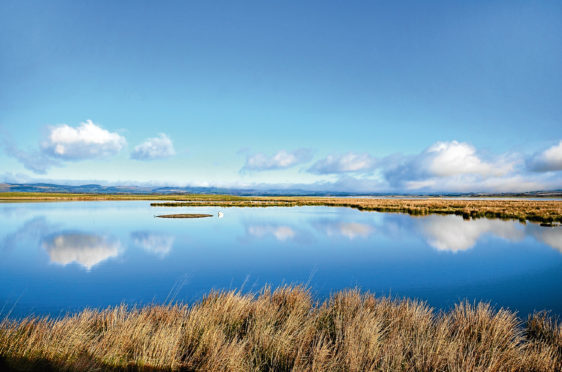Who knew that death cults were on Police Scotland’s radar? Certainly not the family and friends who went to drink and be merry on Loch Leven, only to find their Sunday night campsite the focus of emergency service searchlights and helicopter swoops.
The camping trip had, by someone as yet unnamed and proven wholly wrong, been declared a satanic event and children were at threat of being sacrificed. It turns out the greatest threat was from listening to the adults’ choice of music: thrash metal.
The party had set camp on an island in Loch Leven and were almost certainly the only people in this country of a thousand lochs to be partying amidst the water. Across the world, people live near and on lochs. From Lake Tahoe in the US to Como in Northern Italy, on the houseboats of Kashmir or Kerala, waterside is where humans naturally congregate.
Except in Scotland. Loch Tay is a good example of how the population has slowly moved up from the water, leaving abandoned villages behind. Even with the wealth and changed society of the 21st Century, it is rare to find a home with direct access to the water. This is particularly odd when we consider that at Kenmore there is a replica crannog, a house on stilts above the water, once common across Scotland as the chosen home for our ancestors.
The way we have been cleared off the water mirrors that of the land. Scots live in some of the sparsest-populated land in Europe yet cling to the urban areas. Not for us the Scandinavian habit of retreating to a hut in the woods or by the coast. And our laws prevent the continental tradition of hunting in the wild spaces. For us, the countryside is a foreign place, owned by foreigners (or the class equivalent, posh people).
It’s an economic tragedy – think of the billions we lose by not having a vigorous property market with an abundance of beautiful locations, enabling many more tourists and related businesses. It’s a housing disaster – too little available land means too-high prices. Worse still, think of the social and mental loss, of a people scared to go on their own greatest asset, denied the pleasure and comfort of natural beauty.
Getting lost in the woods is as old as mankind. It serves a purpose. It is fun. The next day, clean up camp, leave nothing behind and carry on. It is frowned upon by the rich, who want the countryside empty so they can get drunk in hunting lodges before shooting at wild animals they “own”.
So it is good news that the Forestry Commission has finally got round to building a colony of huts in Carnock Wood, Fife. I arranged a meeting between the hutting campaign and the Rural Affairs minister, Richard Lochhead, back in 2012 to provide support. It has taken six years for that to be converted into action.
Hutting is the provision of simple living spaces in the countryside, with the intention of giving everyone a place to escape to in the wild. It is a holiday home for everyone who wants one. The hut won’t meet the modern taste for hot tubs and central heating but should be wind and watertight and comfortable for a long weekend.
Access, ideally, is by foot or bicycle, as the hut movement does not wish to turn the land into a rolling suburbia, but preserve the peace and quiet. The pilot scheme for 12 huts has attracted 600 applicants, which suggests it is off to a winning start, and many more huts would be eagerly accepted.
Currently the idea is to use publicly-owned land – the estates of the Forestry Commission and Scottish Water alone are huge. The land expert Andy Wightman reports that around 2,300,000 acres of Scotland are owned by the public, well over 10% of the total mass of the nation. There is no shortage of land and no shortage of people who would like to live on it. The tragedy is that it has taken so long to connect the supply and demand.
Hutting is caught in the class war – seen by some as a the pursuit of middle class greenies, by others as yobs spoiling the countryside. Both are wrong. It is a snobbery to image only the middle class should want to go off grid for the weekend, and a toxic snobbery to imagine that only the rich should be trusted with nature. But, then, Scotland is a snobby place.
The land is ours, every one of the five million of us – ours to enjoy and ours to hand on to the next generation better than we found it. Most importantly, it is ours to be free within, to find the quiet to speak to our souls, and the beauty to raise our spirits. Let us find ourselves in our own land – a liberty long denied.
